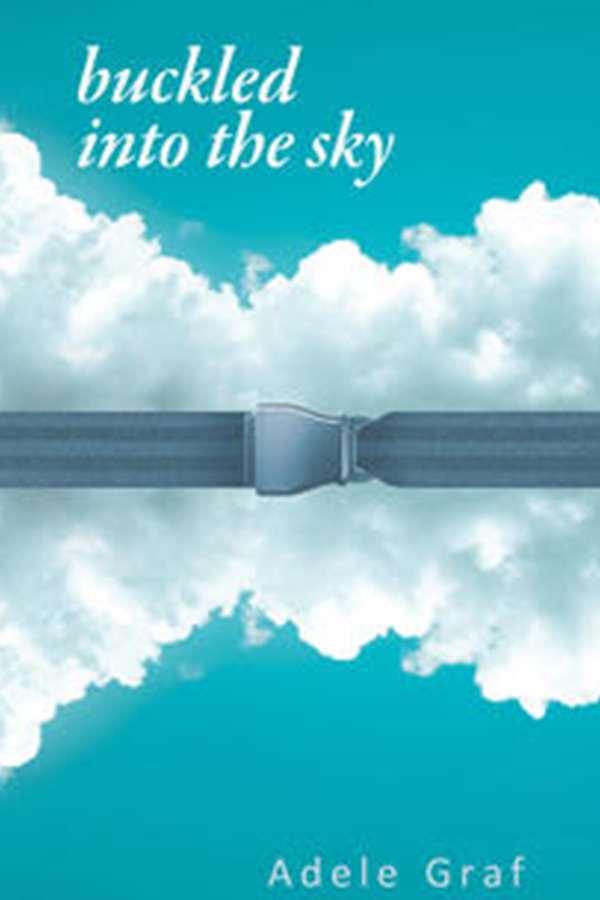The title of this ample book beckons the reader to prepare for takeoff. Good advice. The poems here fly you to Latvia, Crete, California, New York City, Newfoundland and more, and lead you to family joys and sorrows, moments of private repose, and places of dreams and imaginings. It is a true collection, personal poems gathered from a wide range of inspirations and using a wide variety of forms.

The book opens with a sequence of poems inspired by Graf’s trip to Latvia, where she seeks to connect with the extended family members lost in the Holocaust, family knowable only through survivor stories and the faint traces left in home villages. Individuals lost are listed by name in the poem “Armour.” These include cousin Ruth “killed in knee socks,” Ruth who, in the poem “26 Pils Street,” “lived in apartment 2. / Her cake, baked in 1941 / left to cool.” The names and details bring the reader close, and the fact that they have been retained by the surviving family and passed on through years convey the weight of grief.
In following sections, the poet visits a sister in Crete and evokes a trip to Western Cove Newfoundland, with family memories and tales. Three more sections offer poems less clearly linked by theme but that offer vivid moments, dreams, and wordplay. A seventh and final section comprises poems to a beloved and now dead sister.
Graf’s poems of grief pack a punch—and not just in the first and final sections. But playfulness also weaves through the book. Even the sombre first section includes a poem in which the poet imagines herself nestled inside her great-grandfather’s beard as they together compare his Latvian field greens with her store-bought, plastic-packaged, organic ones. A later favourite is the villanelle “78 peas” inspired by a sister’s resistance to eating them. “Wrinkled and limp as newborn babes, 78 peas / circumnavigate sister Willa’s plate.”
In a dark poem, “after the fact,” Graf spells out a story of family members who escaped to the U.S. and hoarded savings to bring over those remaining in Latvia, many of whom also escaped before the Nazis took over, but a large number of whom did not. Rhyme, repetition, assonance, and consonance built around the phrase “tickets and tact” at first felt disconcertingly playful in a story of the loss of thirteen family members individually named, and many succinctly evoked. With re-reading, the phrases took on the rhythm of a tolling bell, lending great weight to the final words: “we / live with our lack.”
These carefully structured poems are the work of an empathetic imagination, an astute observer of the world and its myriad characters, and a heart that grieves but also loves to play. Graf offers us a big box of chocolates, the variety of flavours a reward for each lifting of the lid.
Bios

Jean Van Loon
Jean Van Loon is an Ottawa writer and a graduate of Carleton, Queen’s, Humber, and UBC. Her second poetry book, Nuclear Family, was published by McGill-Queen’s University Press in April 2022. Her first, Building on River (Cormorant, 2018), was a finalist for the Ottawa Book Award. Her story, “Stardust”, published in the Queen’s Quarterly, was included in Journey Prize Stories 19. Her stories, poems, and reviews have appeared in magazines from coast to coast. [updated in 2023]

